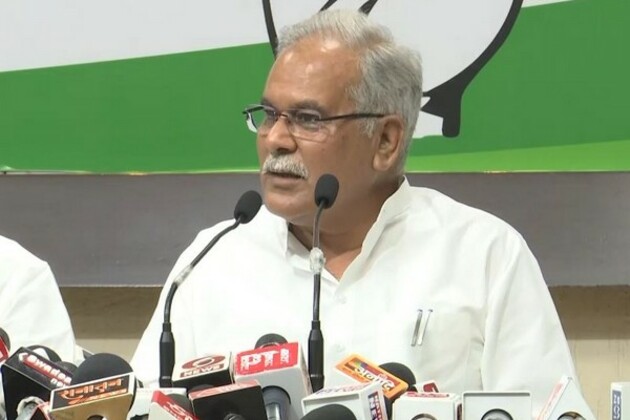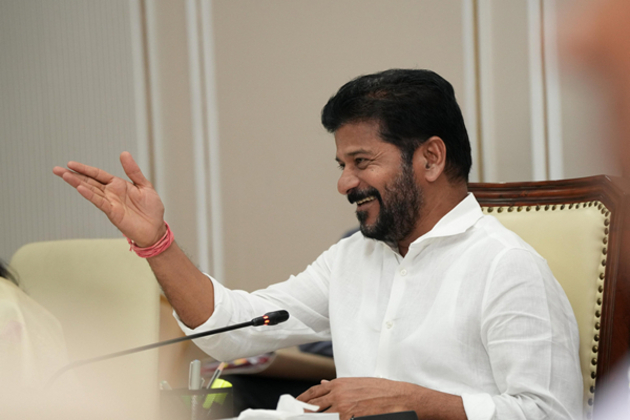New study finds no evidence technology causes 'digital dementia' in older people
The Conversation
14 Apr 2025, 20:09 GMT+10

In the 21st century, digital technology has changed many aspects of our lives. Generative artificial intelligence (AI) is the latest newcomer, with chatbots and other AI tools changing how we learn and creating considerable philosophical and legal challenges regarding what it means to "outsource thinking".
But the emergence of technology that changes the way we live is not a new issue. The change from analogue to digital technology began around the 1960s and this "digital revolution" is what brought us the internet. An entire generation of people who lived and worked through this evolution are now entering their early 80s.
So what can we learn from them about the impact of technology on the ageing brain? A comprehensive new study from researchers at the University of Texas and Baylor University in the United States provides important answers.
Published today in Nature Human Behaviour, it found no supporting evidence for the "digital dementia" hypothesis. In fact, it found the use of computers, smartphones and the internet among people over 50 might actually be associated with lower rates of cognitive decline.
Much has been written about the potential negative impact from technology on the human brain.
According to the "digital dementia" hypothesis introduced by German neuroscientist and psychiatrist Manfred Spitzer in 2012, increased use of digital devices has resulted in an over-reliance on technology. In turn, this has weakened our overall cognitive ability.
Three areas of concern regarding the use of technology have previously been noted:
An increase in passive screen time. This refers to technology use which does not require significant thought or participation, such as watching TV or scrolling social media.
Offloading cognitive abilities to technology, such as no longer memorising phone numbers because they are kept in our contact list.
Increased susceptibility to distraction.
We know technology can impact how our brain develops. But the effect of technology on how our brain ages is less understood.
This new study by neuropsychologists Jared Benge and Michael Scullin is important because it examines the impact of technology on older people who have experienced significant changes in the way they use technology across their life.
The new study performed what is known as a meta-analysis where the results of many previous studies are combined. The authors searched for studies examining technology use in people aged over 50 and examined the association with cognitive decline or dementia. They found 57 studies which included data from more than 411,000 adults. The included studies measured cognitive decline based on lower performance on cognitive tests or a diagnosis of dementia.
Overall, the study found greater use of technology was associated with a reduced risk of cognitive decline. Statistical tests were used to determine the "odds" of having cognitive decline based on exposure to technology. An odds ratio under 1 indicates a reduced risk from exposure and the combined odds ratio in this study was 0.42. This means higher use of technology was associated with a 58% risk reduction for cognitive decline.
This benefit was found even when the effect of other things known to contribute to cognitive decline, such as socioeconomic status and other health factors, were accounted for.
Interestingly, the magnitude of the effect of technology use on brain function found in this study was similar or stronger than other known protective factors, such as physical activity (approximately a 35% risk reduction), or maintaining a healthy blood pressure (approximately a 13% risk reduction).
However, it is important to understand that there are far more studies conducted over many years examining the benefits of managing blood pressure and increasing physical activty, and the mechanisms through which they help protect our brains are far more understood.
It is also a lot easier to measure blood pressure than it is use of technology. A strength of this study is that it considered these difficulties by focusing on certain aspects of technology use but excluded others such as brain training games.
These findings are encouraging. But we still can't say technology use causes better cognitive function. More research is needed to see if these findings are replicated in different groups of people (especially those from low and middle income countries) who were underrepresented in this study, and to understand why this relationship might occur.
In reality, it's simply not feasible to live in the world today without using some form of technology. Everything from paying bills to booking our next holiday is now almost completely done online. Maybe we should instead be thinking about how we use technology.
Cognitively stimulating activities such as reading, learning a new language and playing music - particularly in early adulthood - can help protect our brains as we age.
Greater engagement with technology across our lifespan may be a form of stimulating our memory and thinking, as we adapt to new software updates or learn how to use a new smartphone. It has been suggested this "technological reserve" may be good for our brains.
Technology may also help us to stay socially connected, and help us stay independent for longer.
While findings from this study show it's unlikely all digital technology is bad for us, the way we interact and rely on it is rapidly changing
The impact of AI on the ageing brain will only become evident in future decades. However, our ability to adapt to historical technological innovations, and the potential for this to support cognitive function, suggests the future may not be all bad.
For example, advances in brain-computer interfaces offer new hope for those experiencing the impact of neurological disease or disability.
However, the potential downsides of technology are real, particularly for younger people, including poor mental health. Future research will help determine how we can capture the benefits of technology while limiting the potential for harm.
 Share
Share
 Tweet
Tweet
 Share
Share
 Flip
Flip
 Email
Email
Watch latest videos
Subscribe and Follow
Get a daily dose of International Technology news through our daily email, its complimentary and keeps you fully up to date with world and business news as well.
News RELEASES
Publish news of your business, community or sports group, personnel appointments, major event and more by submitting a news release to International Technology.
More InformationComputers
SectionNew study finds no evidence technology causes 'digital dementia' in older people
In the 21st century, digital technology has changed many aspects of our lives. Generative artificial intelligence (AI) is the latest...
Trials underway in Sonipat for second Asian Yogasana Sport Championship
Sonipat (Haryana) [India], April 14 (ANI): The Sports University of Haryana in Sonipat is hosting the national trials for the upcoming...
No one is "getting off the hook", Trump after US appeared to dial down on China
Washington DC [US], April 14 (ANI): US President Donald Trump has said that no one is 'getting off the hook' on trade after his administration...
Economic Watch: High-profile tariff hikes, secretive exemptions -- unveiling U.S. government's baffling moves
U.S. President Donald Trump shows an executive order on reciprocal tariffs at the Rose Garden of the White House in Washington, D.C.,...
Assam CM meets with Jeet Adani, discusses ways to implement investment commitments of Adani Group
Guwahati (Assam) [India], April 13 (ANI): Based on the positive beginnings made in the Advantage Assam 2.0, Assam Chief Minister Himanta...
US President Trump exempts phones, computers and other electronics from reciprocal tariffs
Washington, DC [US], April 13 (ANI): The Trump administration in the US has exempted electronics like phones, computers and other electronics...
Internet
SectionAirbus teams up with Amazon to boost in-flight connectivity
HAMBURG, Germany: Airbus is looking to expand in-flight connectivity options through a new satellite partnership with Amazon, as the...
Assam: CM Sarma conducts meeting to discuss measures to protect integrity of NEET exam
Guwahati (Assam) [India], April 14 (ANI): Assam Chief Minister Himanta Biswa Sarma on Monday chaired a virtual meeting with the Director...
Salman Khan sweats it out, shares pictures from his power-packed gym session
Mumbai (Maharashtra) [India], April 14 (ANI): Superstar Salman Khan posted pictures from his power-packed gym session. On Monday,...
"Ever since AAP govt came to power in Punjab": Bhupesh Baghel slams Punjab govt
New Delhi [India], April 14 (ANI): Former Chhattisgarh Chief Minister Bhupesh Baghel on Monday the Aam Aadmi Party (AAP) government...
"Russia-Ukraine war is Biden's war; wouldn't have happened if 2020 election wasn't rigged": Trump
Washington [US], April 14 (ANI): US President Donald Trump on Monday blamed the Joe Biden administration for the ongoing Russia-Ukraine...
Telangana paid the best tributes to Ambedkar with SC sub-categorization: CM Revanth Reddy
Hyderabad (Telangana) [India], April 14 (ANI): As the Telangana government officially enforced Scheduled Caste (SC) sub-categorization...












